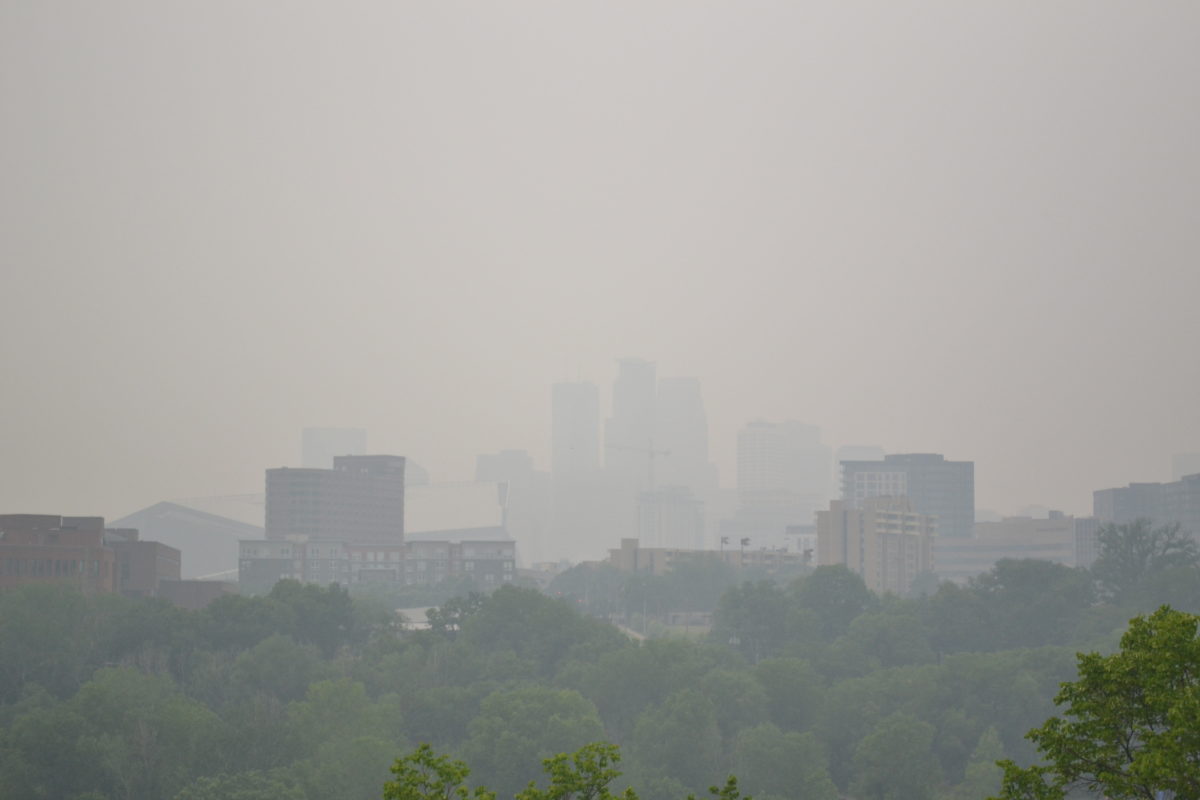Due to wildfire smoke from Canadian forest fires, the Twin Cities saw record-breaking poor air quality and can expect more bad days in the future, according a forcaster with the Minnesota Pollution Control Agency (MPCA).
Pollutants in wildfire smoke from Canadian forest fires led to the highest daily fine particle concentration in the air on record for the Twin Cities on June 14, according to MPCA. In Minneapolis, air quality was listed as unhealthy for everyone.
Minneapolis Health Department communications director Scott Wasserman said as Canadian wildfires continue throughout the summer, Minneapolis residents will feel the negative effects.
“Air quality issues can affect everyone, especially those who live with asthma or other breathing challenges,” Wasserman said. “As the fire season begins, we can expect the quality of our air to continue to be affected.”
MPCA has already issued 19 air quality alerts this year, the second highest rate of alerts in the agency’s history, according to the agency.
Canada’s current wildfires are their worst of the century, according to Emergency Preparedness Minister Bill Blair. Wildfire smoke from parts of Canada, like Ontario and Quebec, is impacting air quality across the country, including Minnesota.
The Minnesota Department of Natural Resources placed burning restrictions in Northern Minnesota, sent four airplanes carrying 800 gallons of water to help fight the wildfires in Canada and protect the state’s air quality.
Poor air quality can cause health problems such as shortness of breath, coughing, chest pain and fatigue, according to MPCA. Asthma and other respiratory issues can worsen due to poor air quality. Bronchitis, asthma and increased risks of heart attacks and strokes are long-term effects of poor air quality exposure.
According to David Brown, an air quality forecaster for MPCA, the agency issues alerts of poor air quality and provides forecasts two days in advance using the Air Quality Index (AQI). The AQI color codes air quality as green, yellow, orange, red, purple and maroon based on the number of air pollutants.
“MPCA does forecasts every day. People can go to our website and see current conditions and forecasts daily,” Brown said. “We’ll issue alerts when we expect air quality to hit the orange AQI category or higher.”
Brown said when air quality worsens, more people should take precautions.
“Those particularly sensitive to air pollution, which includes children, the elderly and those with pre-existing respiratory heart conditions, should try to limit their exertion and time outdoors,” Brown said.








